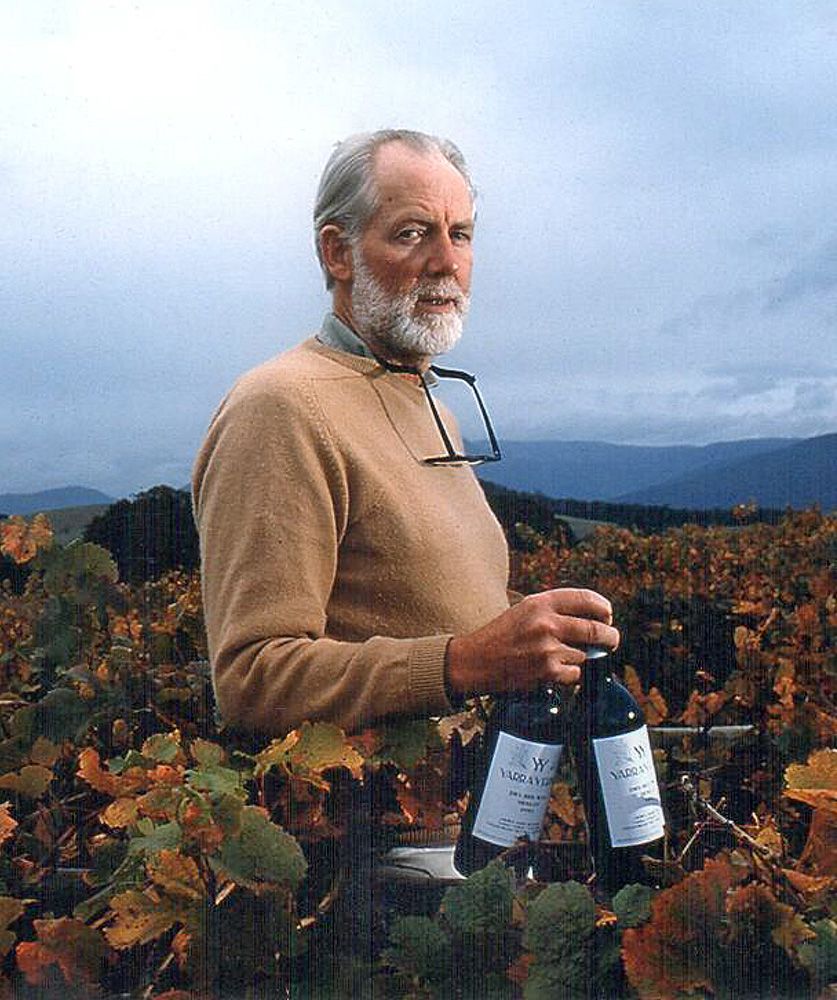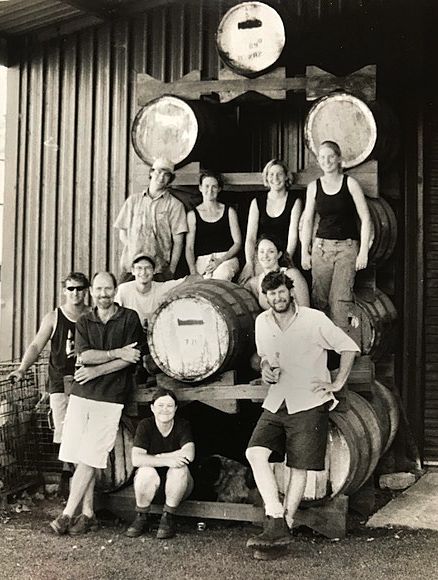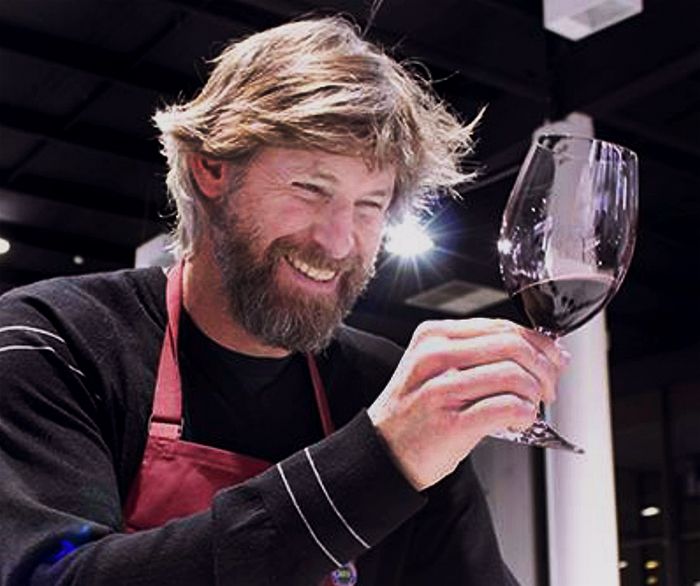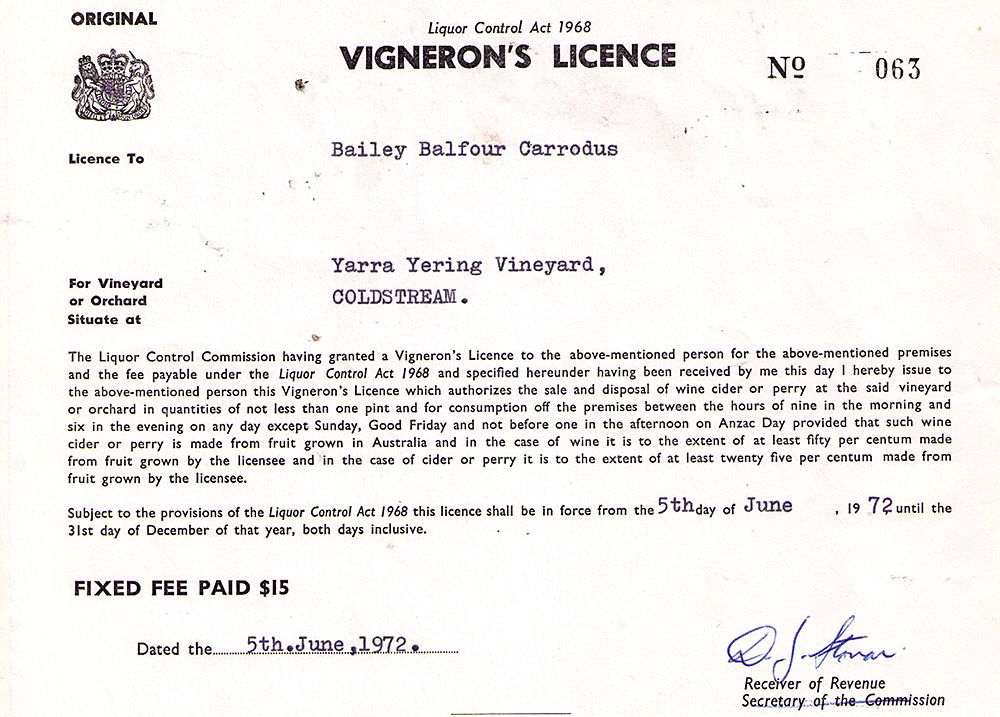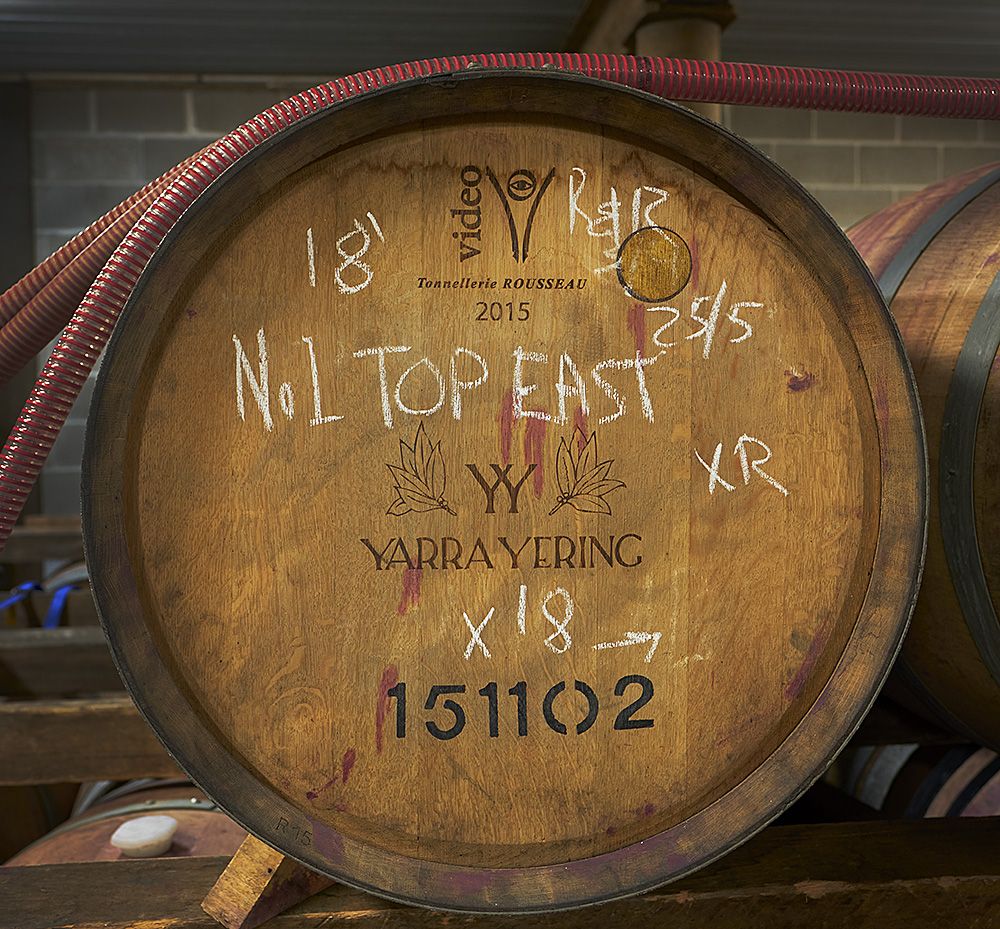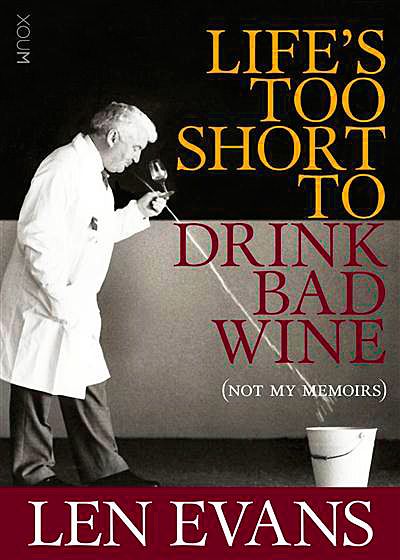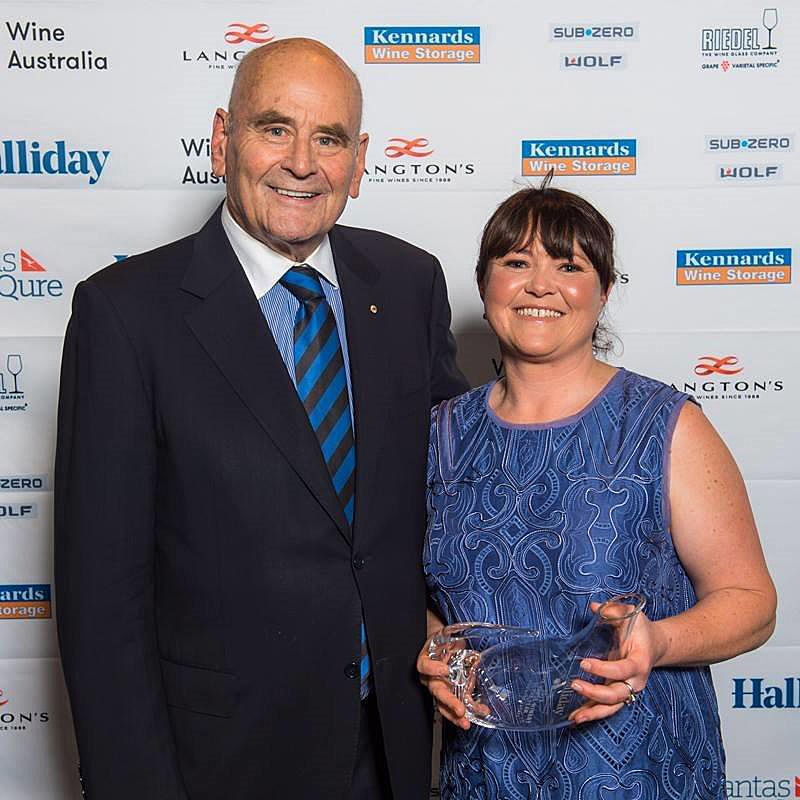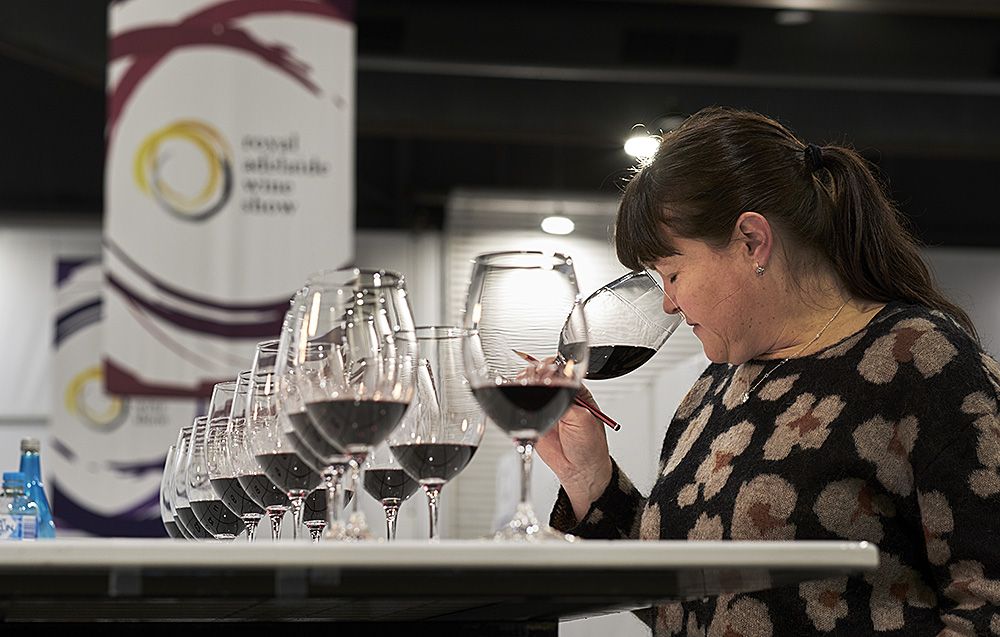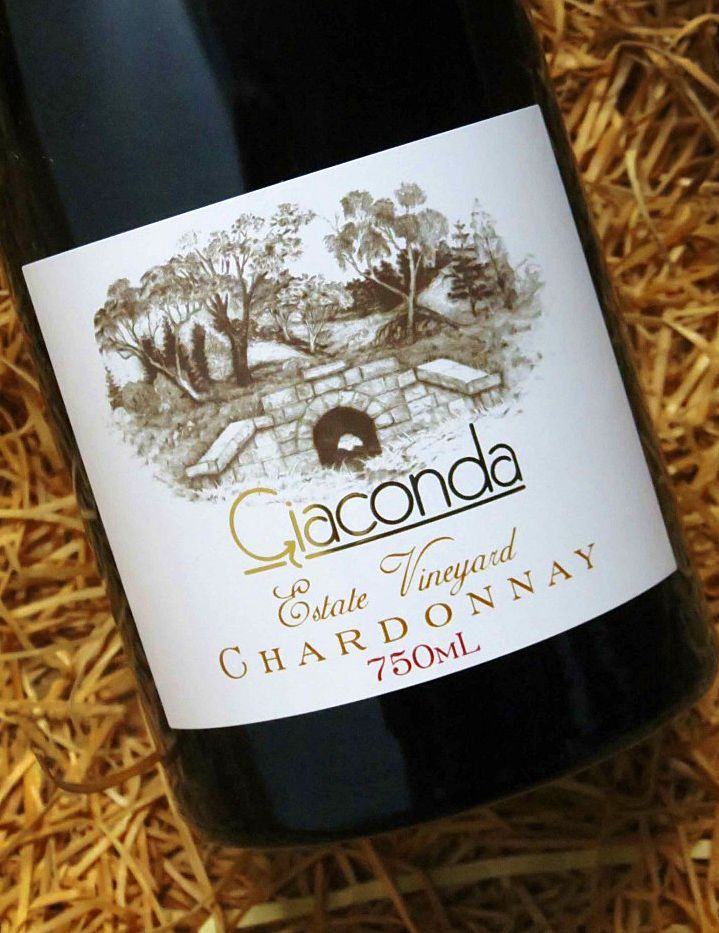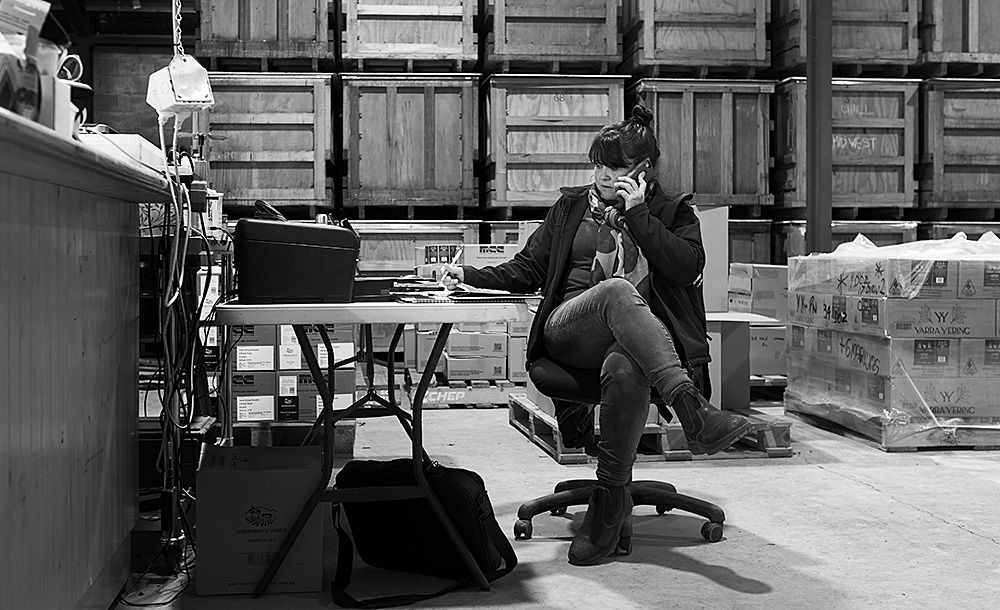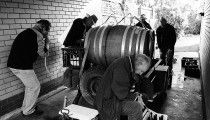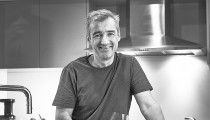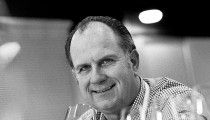CHURCHWARD Bottling Club : Celebrates 50 Years. When I started…
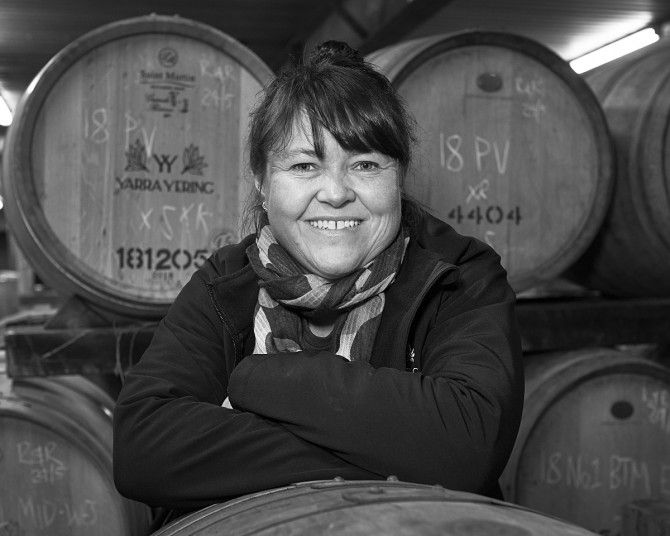
Sarah Crowe : Yarra Yering
Yarra Yering was established in the Yarra Valley by Dr Bailey Carrodus a botanist in 1969. The vineyard is one of the oldest and most beautiful in the Yarra Valley vineyards.
Sarah Crowe has made wine from these vineyards since 2013.
In 2017 Sarah was awarded the Wine Companion ‘Winemaker of the Year’.
James Halliday commented,
“She has made red wines of the highest imaginable quality from her first vintage, and to the delight of many, myself included, has offered all the wines with screwcaps.”
Sarah grew up in Wollongong, she did not know anything about the wine trade till she was in her mid twenties.
In his recent review of the Yarra Yering 2017 Dry Red No 3, Nick Ryan finished with the comment ‘Structurally impeccable, a firm frame with a fine layering of flesh and tannins. One of my favourite wines of the year”.
I’m a great fan of Portuguese blends, makes me want to get some for the cellar.
The very first time Sarah saw a vineyard was in Southern France in the autumn of 1999.
She’s now one of Australia’s most celebrated young wine makers.
Your early life?
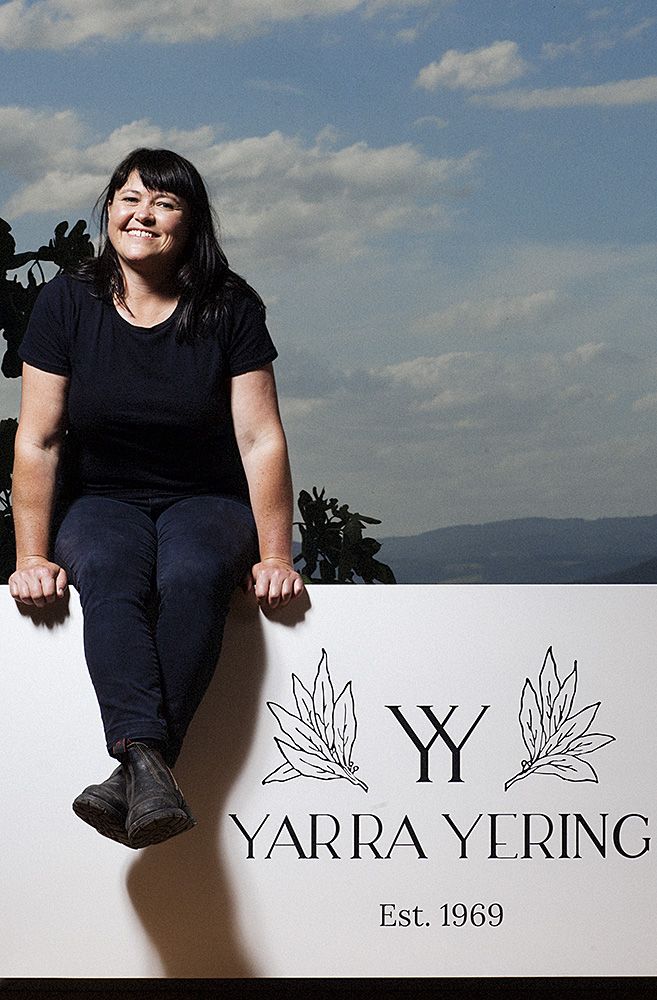
Sarah at Yarra Yering : Photo © James Broadway.
All pretty standard. Grew up in Wollongong, on the coast just south of Sydney.
My father worked for BHP and my mother was a stay-at-home mum, she didn’t work when we were young.
Not a lot of fine food and fine wine in our house, over cooked chops and mushy vegetables. Nothing extraordinary.
Studied Horticulture when I left school.
Went from wanting to be an accountant to wanting to never be an accountant after doing work experience and realised that being inside in an office, on a computer was really not for me.
So I thought, “I just like being outdoors.”
And so I studied horticultural at Yallah TAFE, then worked in garden centres selling plants.
Why wine?
In 1999 I went overseas with my sister, because that’s what people my age did back then.
I bought a one-way ticket to Istanbul, ending up back home 6 months later.
The very first time I’d ever seen a vineyard was when I was away. It was autumn and they looked beautiful.
I was sitting up on a hill drinking a beer, as you do and I thought, “Maybe I could work in a vineyard when I get home — it’s got leaves and dirt, I get all that”.
We were in the south of France somewhere.
I was 23 when I got back home and started an Arts Degree and was also back working in a nursery.
By the time the wine idea filtered through it was about three years later – I drove to the Hunter to see about working in a vineyard for the first time I was 26 so this is a second career really.
How did you get a job in wine?
I called Brokenwood just because I liked one of their wines.
I knew bugger all about wine, but I liked their Cricket Pitch which was their entry level red, a Cabernet Merlot Shiraz blend.
It was probably the most expensive wine that I’d ever brought, maybe for my birthday.
I called them and they offered me a job.
I thought, “God, these people are so lovely.”
He hasn’t met me, he doesn’t know anyone who has met me but he gave me some work.
I went there to prune for five weeks. When the pruning work dried up I went back home to Wollongong.
I was living with my Grandmother at the time to keep an eye on her. I had been driving up to the Hunter on a Monday morning and driving home on a Friday night.
Back in Wollongong for a week and I thought, “Oh, this is rubbish, I don’t like it here anymore.”
So I went back to the Hunter, rented a caravan and drove around harassing people for work.
I was working for a few others as well as Brokenwood. I worked at Audrey Wilkinson in the vineyard on and off. When they had work, I’d go there and when they had no work, Brokenwood would find me some. They were very generous like that, good people all of them, I loved it in the Hunter.
I ended up at Brokenwood for 9 years.
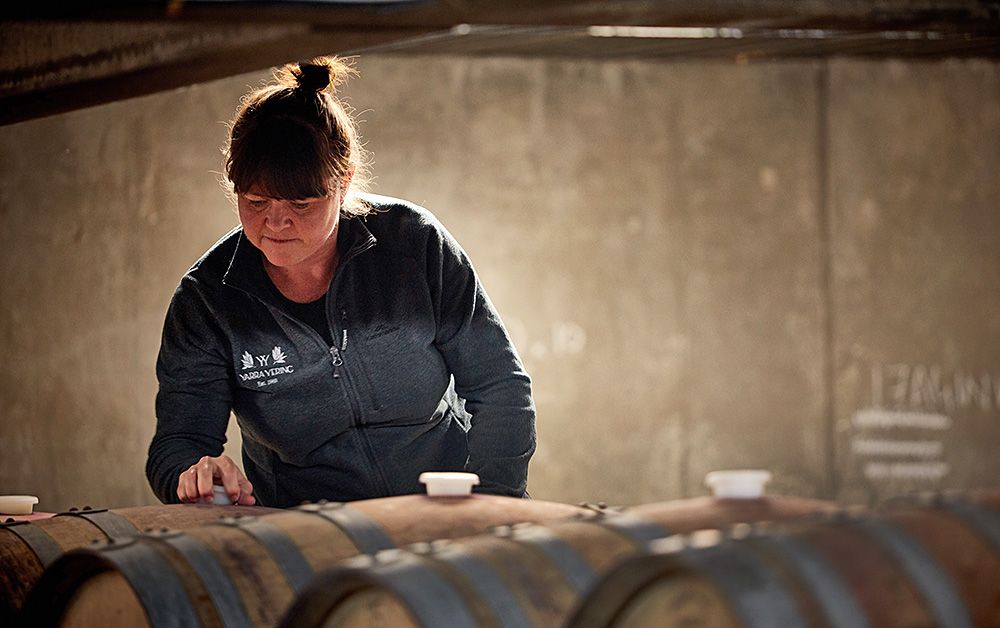
Sarah in the cellar : Photo © Mike Emmett
Any Study?
I enrolled in Charles Sturt University in 2002, studied Viticulture part-time for seven years while working full-time at Brokenwood.
Four years in I switched to the double degree because I thought it’s pretty clear that I’m going to stick to winemaking. PJ Charteris who was my boss at Brokenwood, said to me,

Iain Riggs : Photo © Chris Elfes
“You’ll learn more by actually going out and making wine yourself.”
They were very long days especially during harvest and I was getting pretty fatigued really and then studying as well doing two subjects at a time.
So in the end I thought, I’ll just finish the Viticulture degree.
So it’s a little bit of a cross-over degree but mostly viticulture.
A lot of winemakers said to me later,
“That’s a good way to do it – I wish I’d done Viticulture.”
So all of my uni was about the vineyard but all of my practical experience is in the winery.
I’ve never been a Vineyard Manager and I’ve probably spent a total of two hours on a tractor, but I think it’s about the dialogue and the conversation, the understanding.
The Viticulture has really helped my winemaking. During that time I completed some vintages overseas, Oregon twice and the Rhone Valley.
While in the Hunter you won the “Rising Star of the Year” Award, what did that entail?
That was 2009. I was the assistant to PJ at Brokenwood.
He always called them ‘our wines’.
He travelled a lot so I managed the Cellar.
Often he’d go away at Christmas and we’d start picking before he got back – he never wanted me to but it sometimes wasn’t up to him.
Mother Nature had other ideas.
So I hadn’t really ever had full responsibility but I’d had a fair amount of autonomy at times.
I used to look after their Beechworth Vineyard during harvest so I would come down to Victoria for two months.
What the Award entailed? To be honest I can’t remember.
All I know was I was working bloody hard at the time and learning a lot. For me it was nice because I did a lot of the ground-work and managed the Cellar but PJ was always going to be the Winemaker.
Iain Riggs was above PJ, so it was nice to have some kind of recognition for my contribution, the hard work and the long hours.
Where else to on the way to Yarra Yering ?
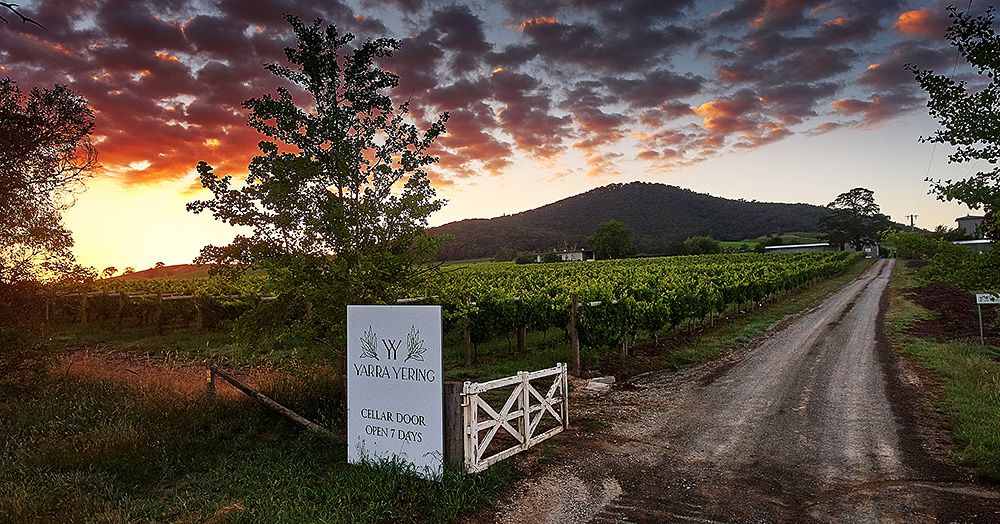
Yarra Yering entry : Photo © Mike Emmett
Off the back of that Rising Star Award, I got approached to be the Winemaker for a new young wine company.
A couple from Sydney who had bought vineyards and were having their wines contract made, asked me to be their winemaker plus design and build them a 300 tonne winery which was a pretty rare opportunity.
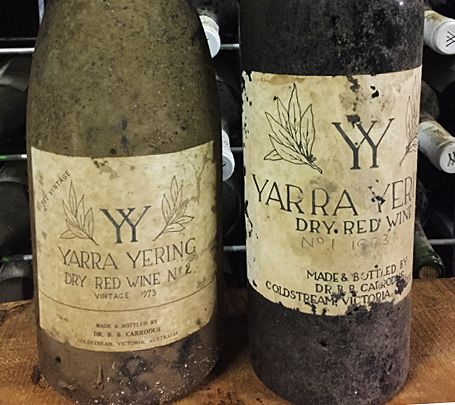
The first Yarra Yering vintage 1973 : Photo © Mike Emmett
Didn’t quite work out though, I was there for a year, the winery was under constructed when we parted ways.
The General Manager at Bimbadgen approached me and said, “Please come even if it’s just for a year.” And I said,
“If I come it’s for three.”
Because you don’t achieve anything good in 12 months. It was almost three years to the day when I left.
I’d been looking south, Victoria and Tasmania were what interested me and then the Yarra Yering Winemaker job was advertised which almost never happens with positions like this.
I applied, got the gig and in September 2013 I came here.
Yarra Yering, a very historic winery, quite an honour. Anything changing?
Dr Bailey Carrodus was a botanist, he planted the vines in 1969.
The first commercial vintage was in 1973. The Yarra Yering vineyard is nearly 50 years old.
Carrodus died at home in September 2008, the vineyard was subsequently sold to two businessman, both passionate Yarra Yering fans.
In 2014 I followed the Yarra Yering recipe, as it had been told to me.
I learnt from that, but also by the time I’d bottled the 2012’s and 2013’s, I had my own thoughts about these wines and the way they were being made.
In 2014 I was very respectful to the historical way of making them. In 2015 I thought,
“That’s part of my knowledge, now I’m going to make wines the best way that I know how.”
They are slightly different in style now.The vineyard is the same so the core is the same, the science is the same.
I think the style shift started from 2013 with some new equipment that was bought, more whole berry retention meant they become a bit more perfumed but they’re becoming even more aromatic, I’m using less new oak because I want to respect the fruit.
I want to highlight the vineyard and not the winemaking.
I bottle a lot earlier now as well, so they’re more primary and I think they are now about fruit purity.
Len Evans Tutorial?
It was in 2010, a very busy year for me.
I went through a redundancy and ‘Future Leaders’ of the Wine Industry Program.
I re-enrolled in University in wine marketing but only did six months before realising “it was all too much, I’ll might come back to this later.”
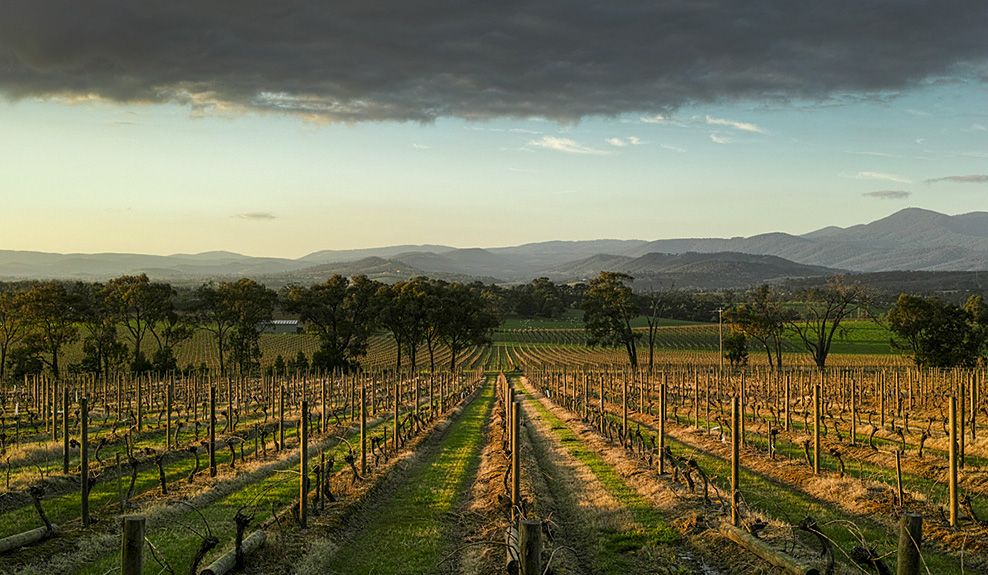
Yarra Yering vineyards : Photo © James Broadway.
The ‘Len Evans’ tutorial plus a new job at Bimbadgen. Yeah, 2010 was pretty big for me.
I’d been lucky to have been involved in the back-end of the tutorial pouring, but it’s completely different when you sit in the room.
I’m still involved on an annual basis, it’s a great privilege to go back each year and be a part of it.
I think overall being involved does make me think about things a bit differently, maybe a bit more worldly.
This is the first job I’ve had where I’ve just made wine off one vineyard.
In the Hunter all the jobs I had, involved sourcing fruit from other regions so that’s been really quite different just to focus and drill-down on the differences across a block rather than differences across regions.
Because we’re small, I think it is even more important for me to be looking outwards, tasting and wine show judging.
In my year were Mike Bennie, Dave Mackintosh, Gabrielle Poy, Patrick White, Sarah Cecchi, Peter Dredge, Paul Carpenter, Vanessa Altmann, Kevin Glastonbury, Bryan Martin, Liam O’Brien was our Dux.
Looking back it’s a group of people who’ve done something quite remarkable together.
There’s a connection there within that group.
I do see some of them fairly regularly as our paths cross doing our jobs.
We like to get together as a group once a year, but it’s not always possible and seems to be getting harder.
Being named by James Halliday as the Wine Companion 2017 ‘Winemaker of the Year’, how was that?
It was pretty crazy.
I barely set foot in the winery for 6 weeks after that night.
The interest it generated and the people who wanted to come and talk to me, endless interviews.
All of a sudden people thought it meant I’d make a good MC!
Demands on my time were massive but it was a great experience and a real honour so I decided to just roll with it.
Australian Women in Wine Awards in London last year?
I think, ‘I might get myself in trouble here’.
The first ‘Women in Wine’ awards were in 2016.
They were held after the national survey on women working in the Australian Wine industry.
The numbers were pretty hard to hide from. Female graduation rates were around 50% but only 10% of positions are filled by women.
I think this initiative made a lot of people stop and think. The timing of the first one was good and it was important to bring awareness.
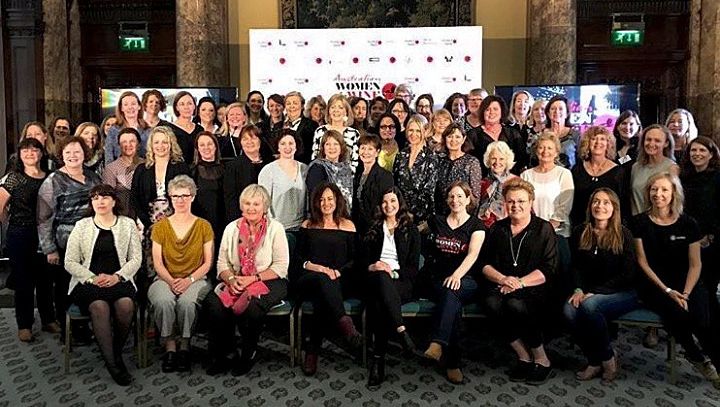
Australian Women in Wine Awards 2017 at Australia House, London : Photo © AWIWA
Going to London was pretty big and an amazing thing to be a part of.
There were over 60 Australian female winemakers or producers who attended.
A group from the Yarra Valley got together and formed a Yarra Valley wine women group which is not really about being women but just about working together, promoting ourselves collaboratively.
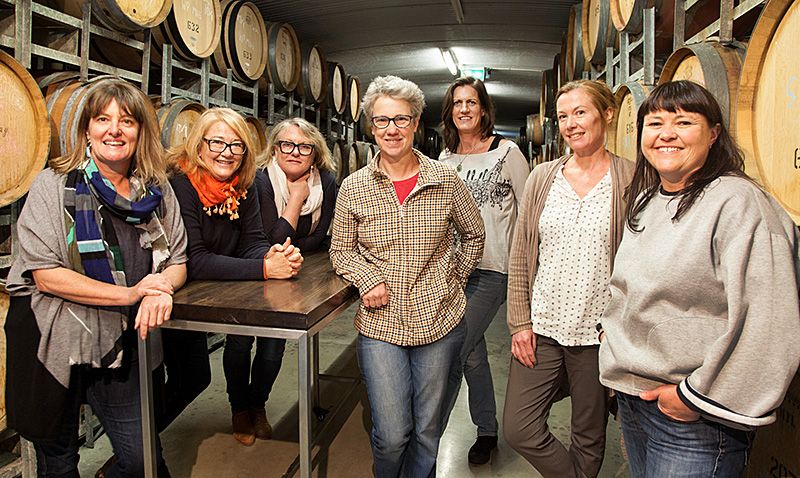
Yarra Valley Wine Women: Photo © Kate Baker
It was fun to hang out with all of those amazing women more so than the actual awards ceremony.
This year I feel that there’s a lot more awareness about gender balance in panels being putting together, wine show judges, presenters.
It’s hard for me to know if I’m being asked to do things because of this or for other reasons but I feel like there’s been a shift in the balance.
I worry it might turn in on itself and encourage a greater division.
What I want is equal opportunity for men and women. Of the female winemakers in Australia the percentage in prominent roles would be more than 10%. In the Yarra Valley Wine Women Group, all of us are winemakers and/or owners or general managers.
In my role as a Chair of a wine show, I ask the committee to change the word Chairman to Chair. The Women in Wine Awards, should be about creating these small changes that have a ripple effect.
There’s no need for the use of Chairman anywhere in the Australian wine industry.
I had a guy come up to me after a Wine Show lunch and say, “I loved what you said about Chair and Chairman.” I was like, “Oh, exactly right.”
Up until that moment he’d had no reason to even consider it.
Let’s all agree to simply replace Chairman with Chair.
Wine Show judging?
I do judge quite a lot and really enjoy it.
This year I must have been asked do 10 to 12 shows, so the ones I’m doing are the ones that got in first and ideally I only want to do three.
This year I’ve done Hunter as the Chair, then the Royal Adelaide Wine Show.
Then I just got asked to do the Pinot challenge and that’s two days in the Mornington and then I had Melbourne and National both saying, “Please, please, please.”
And I was like, “Well I definitely can’t do both and I felt like, if you get asked to do National Show you don’t say no.”
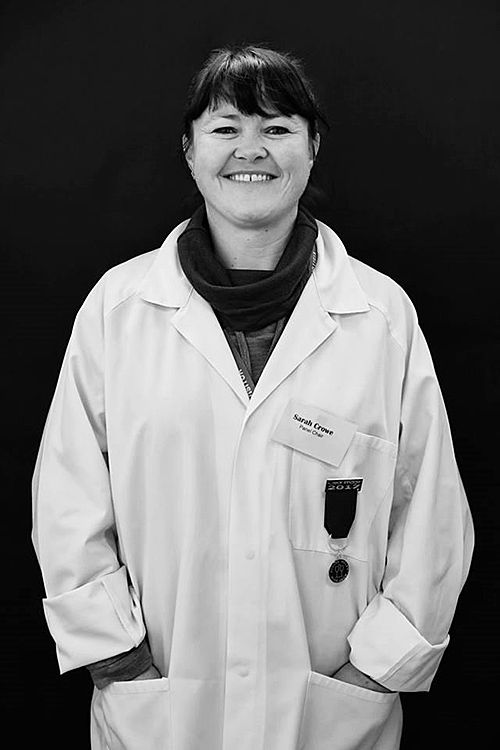
Sarah : chair of Hunter Valley Wine Show : Photo © Chris Elfes
I’ve got a great boss who understands it’s important to me.
I like the 3 year rotation thing because it gives you an opportunity to move around shows and plan in advance.
Ideally you judge at a show for 3 years, that means each year the wine show should have one third new judges, one third in their second year and the last third doing their last year.
This year I did my first Chair of Judges in the Hunter Wine Show.
It was pretty frightening in a way, but it went really well.
I think if you surround yourself with good judges, you’ll get good results.
Sometimes in regional shows you’re struggling to find a Gold, you just have to remind yourself that it has to stand up on a judging bench at a National show and that’s your benchmark.
It was so amazing for me to judge in the Hunter because they had such a great 2017 vintage.
Now the Providence Trophy they can show 17s, 14s and 07s, all strong vintages. Just a beautiful class to judge.
I highly recommend everyone puts some 2017s Hunters in their cellar, both reds and whites.
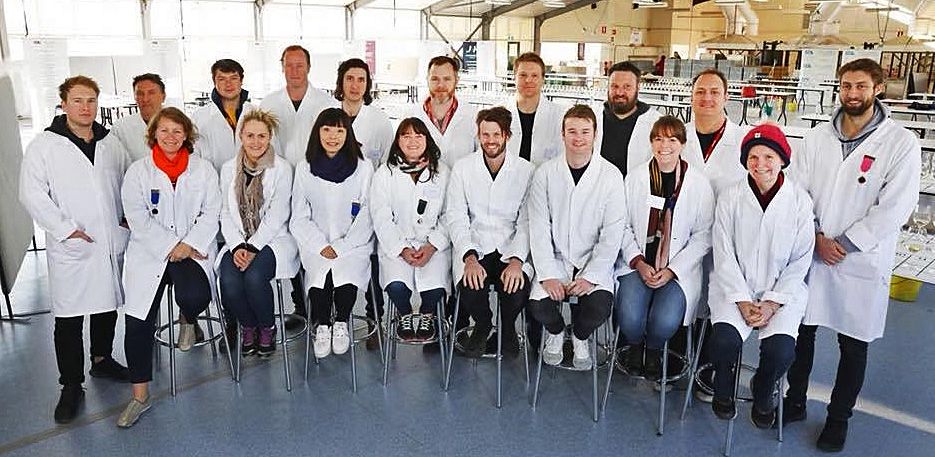
Sarah front and centre as Chair of the 2018 Hunter Wine Show : Photo © Chris Elfes
You have been quoted “My philosophy has always been: Drink less, drink better.” Any preference or Memorable wines?
Yes, that’s my motto!
We have great cellar at Yarra Yering, but I won’t drink wine just for the sake of drinking it.
If I don’t enjoy it I won’t drink it.
I won’t drink bad coffee and I won’t eat shitty bread.
I also won’t eat margarine, you know, there are these things in life I’d rather not just even bother with.
I probably drink more Chardonnay than anything else even though I don’t make a lot of Chardonnay.
It’s almost hard to get a bad one really and I’m probably split fairly evenly between The Yarra, Margaret River and Tasmania.
It all started with a 1996 Giaconda Chardonnay.
I think it was 8 years old and it was stunning.
ENDS.
Production, interview & photography : Milton Wordley
Transcript : Libbi Curnow
Edit : Ann-Marie Wordley
Website guru : Simon Perrin Version Design










